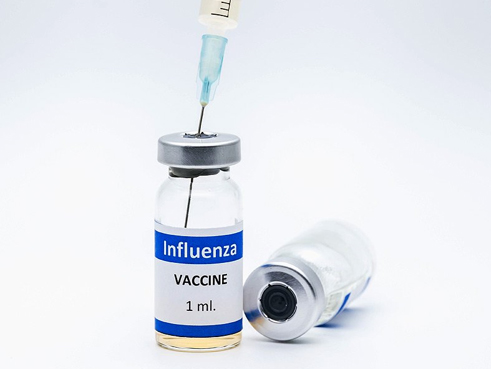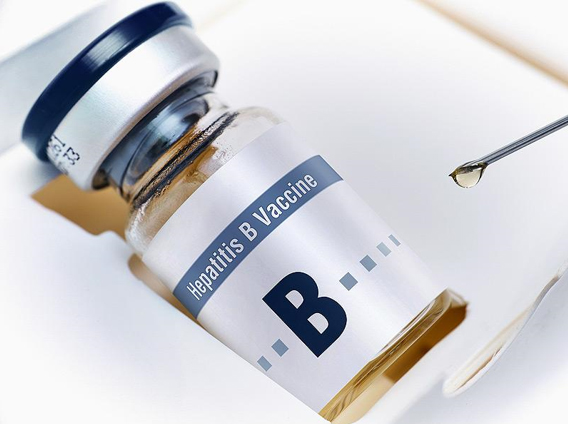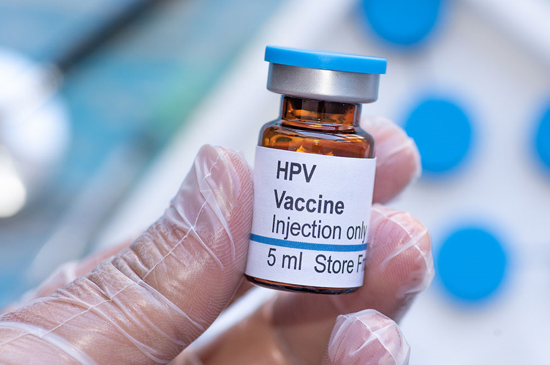
04
Jan
Adult Vaccination
Vaccination is a simple, safe, and an efficient technique to protect oneself from fatal diseases before they infect you. It strengthens your immune system by utilising your body's defences to create resistance to particular pathogens.
Many of the immunizations we obtained as children to help us develop immunity to infectious illnesses last lifelong, and not all of them do. Adults must maintain their immunizations up to date since childhood vaccine protection can fade over time. As an adult, you're at risk for a variety of ailments. Vaccination is among the most practical and safest methods of disease prevention. Here are some important adult vaccinations.
Vaccinations against Streptococcus Pneumonia are known as Pneumococcal vaccines. They can help prevent Pneumonia, Meningitis, and Sepsis in certain circumstances.
Pneumococcal vaccinations are divided into two categories:
Many of the immunizations we obtained as children to help us develop immunity to infectious illnesses last lifelong, and not all of them do. Adults must maintain their immunizations up to date since childhood vaccine protection can fade over time. As an adult, you're at risk for a variety of ailments. Vaccination is among the most practical and safest methods of disease prevention. Here are some important adult vaccinations.
Vaccinations against Streptococcus Pneumonia are known as Pneumococcal vaccines. They can help prevent Pneumonia, Meningitis, and Sepsis in certain circumstances.
Pneumococcal vaccinations are divided into two categories:
- PCV13 or Pneumococcal Conjugate vaccination
- PPSV23 or Pneumococcal Polysaccharide immunisation
They are administered either intramuscularly or topically. As per the advice of the CDC, people above the age of 65 are recommended to get themselves the dosage of the Pneumococcal Polysaccharide vaccine.
Invasive Pneumococcal disease is a potentially lethal infection that affects 10% of people. Serious consequences are more likely in the elderly and those with underlying medical issues. Pneumococcal vaccinations are extremely safe and efficient at preventing Pneumonia. Vaccines, like any other drug, can cause adverse reactions. The most prevalent Pneumococcal vaccination side effects are minimal and only last a day or two. Severe (anaphylactic) adverse responses to immunisation are quite rare.
Both forms of Pneumococcal vaccines stimulate the production of antibodies against Pneumococcal germs in the body. If you are infected with the organisms, they keep you from getting sick by creating antibodies due to the vaccine. By generating antibodies, injectable vaccinations only protect at the blood level. In the year 2009, as per a survey conducted, it was found that nasal spray had a better impact on children. Instead of the shots before the flu season, these were given, which contained dead or weak viruses.
The Pneumococcal bacteria have been found in over 90 distinct strains, most of which do not cause severe illnesses. Numerous studies have shown that intranasal vaccines have a higher clinical effectiveness than injectable vaccines. The vaccination is safe in children aged 2 to 17. LAIV is safe to use in healthy individuals and the elderly (for those who do not have a history of egg allergies or asthma).
Influenza vaccine

The Flu, or Influenza virus, is a contagious respiratory infection caused by influenza viruses. Viruses that cause the Flu invade the nose, throat, and lungs. Flu is quickly disseminated and can cause significant complications, particularly in very young children, the elderly, pregnant women, and individuals with long-term medical illnesses such as asthma and diabetes.
Adults aged 65 and over are more susceptible to Pneumococcal illness. Apart from that, adults of all ages are at risk for pneumococcal illness if they have had it before. Those who have a compromised immune system and children under the age of two. The Flu can range from mild to severe. We have no way of knowing who will have a mild illness and who will get sick.
Children under the age of 5 and those with long-term medical issues are more prone to wind up in the emergency room due to the Flu. Generally, healthy kids aged 2 to 18 are recommended for the Influenza vaccine. For most healthy children aged 2 to 18, either LAIV or IIV can be utilised.
The Influenza vaccine is administered in 2 doses for all age groups. Injectable and Intranasal vaccines are the two forms. The Intranasal vaccination is administered through the sinuses as a spritz. The Intranasal mode of delivery helps to minimise injection-related reactions and discomfort. It also imitates the virus's assault pattern, giving it some distinct benefits. By generating antibodies, the Intranasal vaccination protects mucosal immunity (the nasal tract) and also the bloodstream at the local level.
Hepatitis B

Hepatitis B is a liver disease that can cause mild illness lasting a few weeks or lead to a serious, lifelong illness.
Hepatitis B is transmitted when Hepatitis B virus-infected blood, sperm, or any other bodily fluids enter the body of an uninfected individual. The virus can enter organisms in the following ways:
Invasive Pneumococcal disease is a potentially lethal infection that affects 10% of people. Serious consequences are more likely in the elderly and those with underlying medical issues. Pneumococcal vaccinations are extremely safe and efficient at preventing Pneumonia. Vaccines, like any other drug, can cause adverse reactions. The most prevalent Pneumococcal vaccination side effects are minimal and only last a day or two. Severe (anaphylactic) adverse responses to immunisation are quite rare.
Both forms of Pneumococcal vaccines stimulate the production of antibodies against Pneumococcal germs in the body. If you are infected with the organisms, they keep you from getting sick by creating antibodies due to the vaccine. By generating antibodies, injectable vaccinations only protect at the blood level. In the year 2009, as per a survey conducted, it was found that nasal spray had a better impact on children. Instead of the shots before the flu season, these were given, which contained dead or weak viruses.
The Pneumococcal bacteria have been found in over 90 distinct strains, most of which do not cause severe illnesses. Numerous studies have shown that intranasal vaccines have a higher clinical effectiveness than injectable vaccines. The vaccination is safe in children aged 2 to 17. LAIV is safe to use in healthy individuals and the elderly (for those who do not have a history of egg allergies or asthma).
Influenza vaccine

The Flu, or Influenza virus, is a contagious respiratory infection caused by influenza viruses. Viruses that cause the Flu invade the nose, throat, and lungs. Flu is quickly disseminated and can cause significant complications, particularly in very young children, the elderly, pregnant women, and individuals with long-term medical illnesses such as asthma and diabetes.
Adults aged 65 and over are more susceptible to Pneumococcal illness. Apart from that, adults of all ages are at risk for pneumococcal illness if they have had it before. Those who have a compromised immune system and children under the age of two. The Flu can range from mild to severe. We have no way of knowing who will have a mild illness and who will get sick.
Children under the age of 5 and those with long-term medical issues are more prone to wind up in the emergency room due to the Flu. Generally, healthy kids aged 2 to 18 are recommended for the Influenza vaccine. For most healthy children aged 2 to 18, either LAIV or IIV can be utilised.
The Influenza vaccine is administered in 2 doses for all age groups. Injectable and Intranasal vaccines are the two forms. The Intranasal vaccination is administered through the sinuses as a spritz. The Intranasal mode of delivery helps to minimise injection-related reactions and discomfort. It also imitates the virus's assault pattern, giving it some distinct benefits. By generating antibodies, the Intranasal vaccination protects mucosal immunity (the nasal tract) and also the bloodstream at the local level.
Hepatitis B

Hepatitis B is a liver disease that can cause mild illness lasting a few weeks or lead to a serious, lifelong illness.
Hepatitis B is transmitted when Hepatitis B virus-infected blood, sperm, or any other bodily fluids enter the body of an uninfected individual. The virus can enter organisms in the following ways:
- The act of giving birth (if a pregnant person has Hepatitis B, her baby can become infected)
- Sharing blades or razors with someone infected
- Exposure to an infected individual's fluids or open wounds
- Sex with an infected companion
- Sharing syringes, catheters, or other drug-injection supplies.
Depending on the age, the Hepatitis B vaccination is administered in a two- or three-dose course depending on the age. On average, the entire Hepatitis B vaccination series is only required once in a lifetime. Adults with Diabetes and individuals at high risk of infection owing to their occupations, lifestyles, living arrangements, or place of birth should get the Hepatitis B vaccination.
A "booster" dose of Hepatitis B vaccination is an additional dosage that can augment or prolong the vaccine's efficacy. Although most healthy individuals do not require a booster dose, genetic testing can be used to assess your susceptibility and determine if a booster dose of vaccination is required.
Human papillomavirus vaccine

The Human Papillomavirus (HPV), a sexually transmitted condition, is linked to most cervical tumors. Cervical cancer and other cancers induced by HPV may be reduced worldwide if the HPV vaccination is widely utilised. HPV strains transmit through sexual contact and are linked to most cervical cancer occurrences.
The HPV vaccination has been licensed by the US Food and Drug Administration for both males and females. Teenagers and young adults up to 26 who have not yet begun or completed the HPV vaccine series should do so. If administered before adolescents or females are infected with the virus, this vaccination can prevent most cervical cancer incidences.
This vaccination can also help prevent cancers of the vaginal and vulvar regions. Precancers of the cervix in young females have also decreased due to HPV vaccination. Pregnant women and those who are mildly or seriously unwell are not advised to have the HPV vaccination. It's critical to tell your doctor about any serious allergies, such as a Yeast or Latex allergy. Also, tell your doctor if you've ever had a life-threatening adverse response to any vaccine substance or initial dosage of the vaccination. In this scenario, immunisation is not recommended.
Vaccines teach your immunity system to make antibodies in the same way that it does when you're introduced to a disease. On the other hand, vaccines do not cause illness or put anyone in danger of problems since they only include dead or reduced varieties of pathogens like bacteria or viruses.






